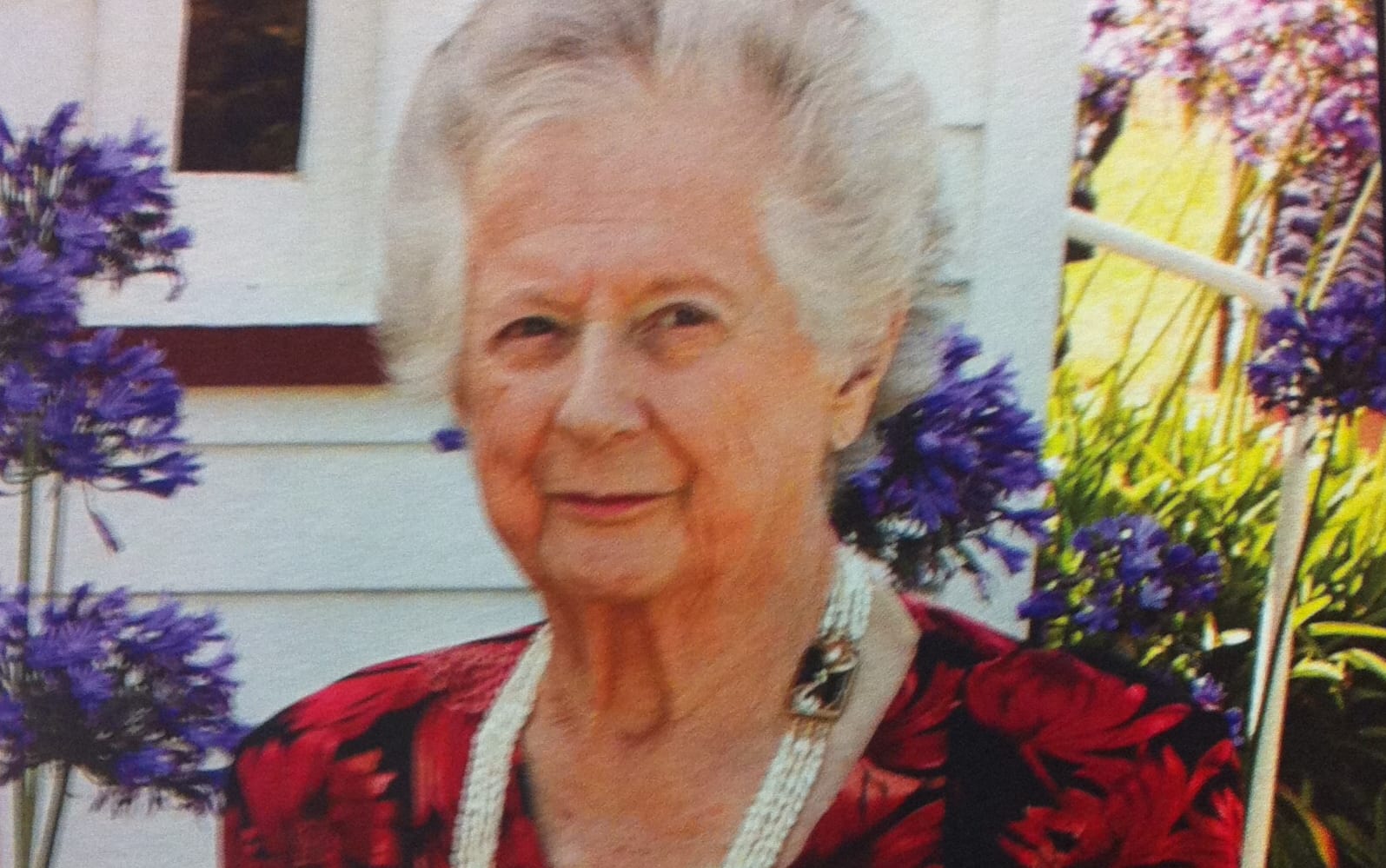A coroner has indicated she is likely to make adverse comments regarding the death of an elderly Wellington woman whose repeated medical alarm calls went unanswered.

Pat Smith died in 2014, two days after a fall. Photo: Supplied
Carla na Nagara today held an inquest into the death of Patricia Smith, who died in September 2014 in Wellington Hospital.
Miss Smith shared an alarm base unit with her brother-in-law who lived at the same property, but they both had individual Freedom Medical Alarm pendants.
At about 6am on 1 September she fell out of bed, breaking several bones, including her wrist and thigh.
She pressed her alarm, but ambulance responders who went to her home spoke to her brother-in-law, who told them he had not sought help.
Miss Smith continued to repeatedly press her pendant and an hour later another ambulance attended her home but again the paramedics spoke to her brother-in-law and left the property without visiting her separate dwelling downstairs.
After four hours she finally managed to reach her phone and call an ambulance, but she died in hospital two days later.
Stacey Etheridge, the operations support manager for Wellington Free Ambulance, told the inquest an investigation had revealed that at that time it was not possible for staff to determine which pendant had been activated.
However, many improvements had been made since then including a note added into the system on the day of the incident to indicate there were two patients at the address and staff should confirm which one had sought help.
Ms Etheridge said it appeared an assumption was made by the crew after they had spoken to Miss Smith's brother-in-law that there was no one else to enquire about and, because of all the activations that were coming through, it was assumed the alarm was faulty.
"There was a phone call between the paramedic on scene and a call-taker.
"During the call you can hear the alarm going off and the crew said they had spoken to him and he wasn't pressing his alarm so it was presumed it was going off because of a fault.
"[The crew] went through the faults procedure which didn't fix it - obviously because it wasn't a fault - so we unplugged it," Ms Etheridge said.
In reply to a question from one of the lawyers at the inquest, Miss Etheridge admitted one of the distressing aspects was that when the alarm was going off it was Miss Smith trying to get help.
"That is true and it's horrible. It's a very difficult situation.
"It hadn't happened before and I can understand why responding paramedics and call-takers did what they did, but it's absolutely horrible for Miss Smith."
Ms Etheridge said there had been a miscommunication between those involved.
"So when they called [the comms centre] about the alarm issues, [it was] automatically assumed they'd called both [Miss Smith and her brother-in-law].
"But when the crew went, they were told it was a fault and on arrival [he said] it was a fault so there was a big miscommunication and [they] overlooked asking have you checked Miss Smith."
Ms Etheridge said given there were two patients in the same dwelling, she would have expected both to have been checked.
She said after the incident procedures were changed so listed family contacts were also alerted if an alarm was activated.
Ms Na Nagara asked whether family members would be advised if an alarm was turned off, but Ms Etheridge said currently only the client is told, so they know to call 111 in that situation.
She agreed it would be helpful for family to be contacted when alarms are turned off.
Paul Fake from the Wellington Free Ambulance Trust also apologised to Miss Smith's family, saying he was sorry paramedics had not reached her sooner.
He also apologised for the distress she would have endured while waiting for help.
"We acknowledge to the family we didn't get it right for her and for that we are truly sorry."
"Having provided that explanation, don't wish to blame the call-takers, paramedics or anyone else.
"Systems at the time did not prevent this happening, but a more intelligent system is now in place. Alarms now indicate if more than one patient is sharing a base unit and staff have been made aware of this and we've all learned from this error."
Mr Fake said it was a very unique situation that had never happened before or since.
Coroner na Nagara reserved her findings but said she believed some adverse findings regarding what happened to Miss Smith were inevitable.
She said on the evidence there was no doubt that the elderly woman's last hours at her home would have been very distressing for her.

